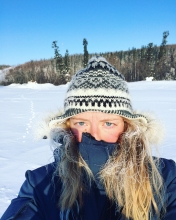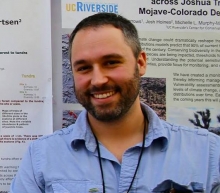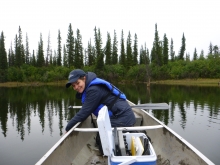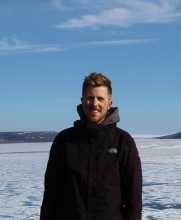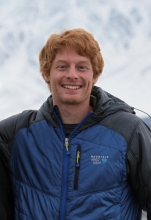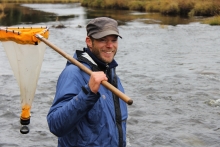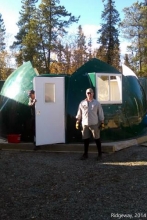Congratulations to all our 2017 award winners!
Research Assistantship Recipients
Elizabeth Worden
University of Manitoba
Changing Human-Beluga Relations and Subsistence Livelihoods in the Canadian Arctic
Elizabeth is studying changes over time in subsistence hunting for Beluga Whales and in changes to the Climate. She is designing the project together with the community, as the focus of the research being on community. This unique interdisciplinary approach will be to assess the implications of these changes on subsistence livelihoods and overall community well-being in Aklavik, NT.
Steven Mamet
University of Saskatchewan
Permafrost and ecological change in the eastern Selwyn/western Mackenzie Mountains
Steven is researching to gain an improved understanding of both vegetative and environmental limiting factors in the North. He will study what changes mean for subarctic environments and plant communities, with the changes being increasing temperatures, longer growing seasons, and thawing permafrost.
Kimberley Geeves
Simon Fraser University
Sediment Carbon Quality in Lakes of the Mackenzie River Delta, Western Canadian Arctic
Kimberley is studying the role of sediment carbon quality on the biogeochemistry of methane cycling in lakes of the Mackenzie River Delta. The project will assess how the multiple stresses of global change may affect lakes of the Delta and will overall be a benefit to communities that depend on aquatic resources derived from the Mackenzie Delta.
Research Fellowship Program
David Fawcett
University of Guelph
A Longitudinal Approach to Assessing Vulnerability to Climate Change in Ulukhaktok, NWT
David will study how climate change is being experienced and responded to by Inuit in Ulukhaktok, NT over an eleven year period. Specifically, the research focuses on Inuit subsistence hunting and seeks to understand the dynamics of how climate change affects subsistence, as well as coping and adaptive responses.
Chris Cannon
University of Alaska, Fairbanks
Traditional Sahtu Dene Astronomy and Sky-Related Knowledge
Chris intends to document traditional Sahtu Dene astronomy and sky-related knowledge in Déline, NWT. This study builds on the researcher's ongoing dissertation research in Alaska and Canada to understand Northern Dene astronomy more broadly as a complex domain of linguistic and cultural knowledge.
Michael Palmer
Carleton University
An investigation of the factors inhibiting the chemical recovery of Yellowknife area lakes from 50 years of arsenic pollution
Michael is researching catchment and within-lake processes that are impeding the natural recovery of lakes in the Yellowknife Area. Lakes near historical mining operations in the area continue to show signs of arsenic contamination almost 60 years after the bulk of arsenic was deposited across the landscape from legacy ore roasting operations.
Elizabeth Worden
University of Manitoba
Changing Human-Beluga Relations and Subsistence Hunting in the Canadian Arctic
Elizabeth is studying changes over time in subsistence hunting for Beluga Whales and in changes to the Climate. She is designing the project together with the community, as the focus of the research being on community. This unique interdisciplinary approach will be to assess the implications of these changes on subsistence livelihoods and overall community well-being in Aklavik, NT.
Kevin Wallington
Choices North Farms
Demonstration of an Agro-Ecological PoultryPonics Dome in Hay River, NWT
Kevin Wallington of Choice North Farms in Hay River is conducting a PoultryPonics demonstration that combines egg farming with hydroponics production with the use of a 'bioreactor' that converts manure into nutrient solutions for the plants in a highly energy efficient dome.
Lyle Frank
University of Calgary
The phenomenology of Indigenous Suicide: A Family Case Study Using a Talking Circle Approach
Lyle is investigating the issue of Indigenous suicide by using interpretive phenomenological analysis. He is doing a case study of an NWT family, and seeks to find out the meanings associated with suicide, and how individuals make sense of this experience by using Indigenous talking circles.

